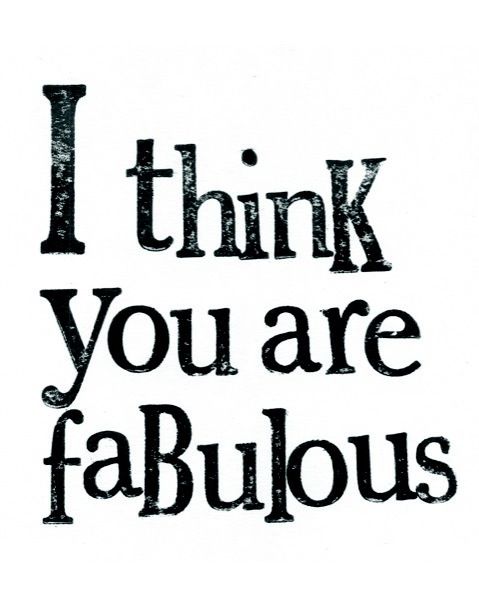Ooooh there’s been so much interesting stuff lately. Since Emma was born, I’ve been mildly obsessed with books and articles that ponder things like work-life balance, how parents (especially moms) feel stretched thin, mommy guilt, etc. I find that reading them make me simultaneously feel better, by knowing that I’m not the only one feeling stressed these days, and feel exasperated, because cutting back is sometimes hard to do in our go-go-go world.
Why Mom’s Time Is Different From Dad’s Time | Wall Street Journal
“Being compelled to divide and subdivide your time doesn’t just compromise your productivity and lead to garden-variety discombobulation. It also creates a feeling of urgency—a sense that no matter how tranquil the moment, no matter how unpressured the circumstances, there’s always a pot somewhere that’s about to boil over.…
It’s something that I hear a lot from parents. One of them—usually the mother—is more alive to the emotional undercurrents of the household. As a result, this more intuitive parent feels that the other parent—usually the father—is not doing his fair share, while the father feels that his wife is excessively emotional and wretchedly inefficient. But what really may be going on is that the couple is experiencing time differently, because each person is paying attention to different things.”
For better or worse, this is how things tend to operate in our household, albeit on a less intense scale. Things tend to rattle around in my head for days or weeks until they pop out and I’m suddenly stressed by them. Jose knows nothing about these things, because they’ve been in my head, so he wonders why the heck I’m suddenly concerned about something he thinks is random. And I definitely think we perceive our time differently.
For Working Moms, Key To Balance May Lie In Elusive Leisure Time | NPR
“I think all of the strategies for us to cram more stuff into our calendar is really not the answer; it’s figuring out what’s important to you and making time to do what’s most important first.”
I nodded my head at this line. So often, we say that we’re busy and the response is to try to streamline our processes, get things done faster, and squeeze more out of every day instead of trying to just commit to less stuff, and commit only to stuff we think is truly important. But then there are articles like this next one…
The Career Ladder Isn’t In The Office | Medium
“What You Do At Night Matters. I was lucky to have this drilled into my head when I was younger by my parents and mentors. I graduated with a marketing degree but wanted to become a designer. So I spent my evenings and mornings practicing, doing real projects for free to get the skills I needed. It took a long time, but eventually it paid off… Most people I know who are successful follow the same pattern. One friend graduated with a history degree, but had an interest in technology and sales. He started doing inside sales and learned programming at night. He eventually became a VP of sales at a startup. Now he’s a CTO. Another friend had a political science degree, but was interested in startups as well. He learned enough design and development to build an agency that he later sold, and he ended up in venture capital.”
The gist of this article is that you are responsible for your own career — in other words, don’t wait for your employer to train you; instead, train yourself. (Although for the specific examples above, I would argue that each person should have reconsidered their college degree and perhaps gotten a degree in what they wanted to actually do.) Still: geez. Work all day and then work all night? I get what he’s trying to say, but come on, when do we get a break? Because then you read things like this next article…
5 reasons why you shouldn’t work too hard | Washington Post
“So as I watched the Cadillac commercial, hanging onto that rich white guy’s pause, I was hoping he’d make a pitch to bring some sanity to American workaholic culture. It wouldn’t have been a first for the auto industry. Henry Ford outraged his fellow industrialists when he cut his workers’ hours to 40 a week. (Standards in some industries at the time were for 12-hour workdays, 7 days a week.) Ford did so because his internal research showed 40 hours was as far as you could push manual laborers in a week before they got stupid and began making costly mistakes.”
Thank goodness I’m not the only one who kind of hates that Cadillac commercial extolling the virtues of Americans’ “hard work.” Spoiler: our hard work is so we can buy Cadillacs, apparently. (I also hate that it says we went to the moon and what did we get? “Bored.” But that’s a rant for another time.)
The Myth of the Science and Engineering Shortage | The Atlantic
“No one has been able to find any evidence indicating current widespread labor market shortages or hiring difficulties in science and engineering occupations that require bachelors degrees or higher… All have concluded that U.S. higher education produces far more science and engineering graduates annually than there are S&E job openings… Were there to be a genuine shortage at present, there would be evidence of employers raising wage offers to attract the scientists and engineers they want. But the evidence points in the other direction: Most studies report that real wages in many—but not all—science and engineering occupations have been flat or slow-growing, and unemployment as high or higher than in many comparably-skilled occupations.”
Really interesting, and fairly true from my limited perspective. I’m in an industry that just laid off a pretty substantial number of people when the space shuttle stopped flying. Although most of those people did eventually find jobs, they often had to jump to a different technical field (oil and gas) or leave the Houston area to find it. NASA hiring has been minimal for years.
Space diaries reveal 6 things on an astronaut’s mind | New Scientist
“I had to laugh to myself at the procedures today. To replace a light bulb, I had to have safety glasses and a vacuum cleaner handy. This was in case the bulb broke. However, the actual bulb is encased in a plastic enclosure, so even if the glass bulb did break, the shards would be completely contained. Also, I had to take a photo of the installed bulb, before turning it on. Why? I have no idea! It’s just the way NASA does things.”
Ohhhhhh too true. There are some really insightful comments in here.




I used to read this kind of thing obsessively before Isla was born. Ever since she was born, I can no longer work up the motivation. My conclusion is that life is full of choices. You cannot have it all. So you decide what’s important and go with that.
As for working in the evenings, if you do that, yes, you’ll gain there, but you’ll lose something else – time for your hobbies, time with your husband, time with your daughter, and so on. It’s all about choices. My choice is to take it easy and enjoy my family.
Yeah, I 100% agree with you in theory but I often struggle in practice. I fall prey to the train of thought that maybe I could “fit it all in” if only I was better at time management, or pick up some new tip or trick. And yet when I read these books, my reaction to some parts is usually something like “oh geez, just learn to say no once in a while.”
Perhaps I am not very good at following my own advice. 😉